#maritime definition
Explore tagged Tumblr posts
Text
Unlocking the Connectivity Waves: The Importance of Satellite Communication in the Maritime Industry

The ocean has long been a region of mystery and awe, capturing mankind with its grandeur and enigmatic charm. Maritime activities have played an important part in shaping the world's economies and civilizations for ages. Satellite communication has emerged as a beacon of progress in today's fast evolving technology, transforming the way maritime companies function.
The Definition and Importance of Maritime
Before looking into the importance of satellite communication, let's define the term "maritime." Anything relating to the sea, oceans, or waterways is referred to as maritime, and includes all activities, industries, and legal issues involved with marine domains. This phrase encompasses a wide range of meanings and connotations, from maritime law that oversees trade and navigation to Maritime Aquariums that educate and entertain.
Maritime Law and Trade: Bringing Nations Together Across Oceans
One of the essential pillars of maritime is "maritime law." This legal framework covers maritime activities such as shipping, navigation, and commerce. Maritime law is critical in fostering international collaboration, guaranteeing the smooth movement of products, and resolving maritime-related conflicts. In essence, it establishes a unified global network that connects nations, promotes trade, and propels economic progress.
Aquariums on the High Seas: A Look Inside the Aquatic World
While maritime law has an impact on the companies that thrive on the water, maritime aquariums allow people to explore and appreciate the beauty of the aquatic world. These establishments serve as teaching hubs, informing tourists about marine life, conservation efforts, and the influence of human activities on the oceans. Maritime aquariums help to preserve our planet's biodiversity by helping to understand and maintain vulnerable ecosystems.
Weathering the Storms on the High Seas
The maritime climate, defined by its closeness to major bodies of water, has distinct weather patterns that differ from those seen in continental regions. The water functions as a natural temperature regulator, reducing extreme weather and offering gentler climates to coastal communities. However, as climate change creates issues around the world, monitoring and understanding maritime climate becomes increasingly more important for preserving coastal people' well-being.
Empowering the Maritime Industry Through Satellite Communication
Connectivity is the cornerstone of modern progress. With the introduction of satellite communication, the maritime industry has undergone substantial change. Traditionally, communication at sea was limited, which made it difficult to manage operations, ensure crew wellbeing, and respond to emergencies effectively. However, satellite communication has broken down these boundaries, allowing the maritime sector to reap a wealth of benefits.
Continuous Communication at Sea

Satellite phone communication allows ships to stay connected to the rest of the globe no matter where they are in the wide ocean. Crew members may now easily interact with their families, obtain real-time weather updates, and work with onshore teams. This continuous communication boosts crew morale while also improving operational efficiency and decision-making, resulting in smooth and safe trips.
Navigation and safety have been improved.
Navigating dangerous seas necessitates accuracy and up-to-date knowledge. Satellite communication provides improved navigation systems to vessels, allowing for precise positioning, route planning, and collision avoidance. Furthermore, in the event of an emergency, ships may quickly request assistance and coordinate rescue operations, considerably enhancing maritime safety standards.
Improving Maritime Trade
Maritime trade, a pillar of the global economy, is strongly reliant on effective communication routes. Satellite connection allows for real-time freight tracking, easing logistics and supply chain management. As a result, expenses are decreased, delivery times are reduced, and customer satisfaction is increased. The interconnection of the maritime industry via satellite communication encourages international trade and stimulates global economic growth.
Environmental Conservation and Monitoring
Satellite technology benefits not only the human side of maritime definition activity, but also the monitoring and protection of the marine environment. Satellites with remote sensing capabilities can monitor pollution levels, detect illicit fishing, and monitor changes in ocean temperatures. Satellite communication helps to protect marine habitats and promote sustainable practices by delivering useful data.
Conclusion
Satellite communication has undeniably transformed the maritime industry, providing unprecedented connection and prospects. This technology plays a critical role in defining the maritime world of tomorrow, from facilitating international trade and navigation to protecting the maritime meaning environment. To secure a sustainable, affluent, and well-connected marine future, we must embrace and exploit the promise of satellite communication as we move forward.
#Satellite communication#maritime#maritime definition#maritime law#maritime aquarium#define maritime#maritime trade#maritime climate#maritime meaning
0 notes
Text








Andrew Scott in custom blue Vivienne Westwood with Lagos pearl jewelry, at the 2025 Golden Globes awards.
#andrew scott#tiffany blue#maritime chic#definitely not Smurf blue ANDREW#vivienne westwood#golden globes#where are your custom dyed matching prom shoes?
51 notes
·
View notes
Text
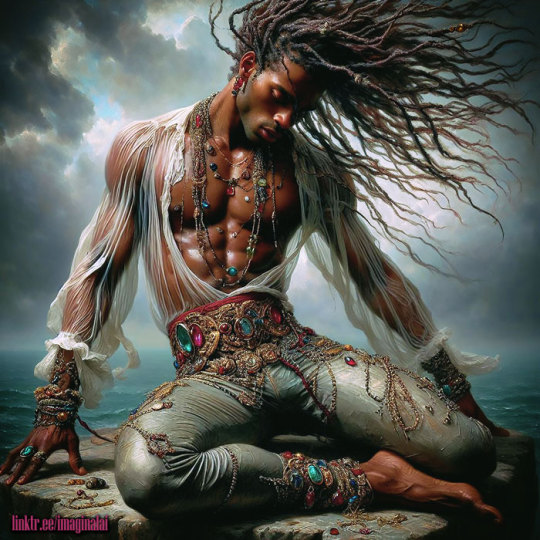
"Stranded" (0001)
(The Shipwrecked Series)
#stranded#maritime disasters#stormy#survival#fashion jewelry#gemstone jewelry#long haired man#long hair#lean man#bare foot#abdominals#muscular definition#ai men#ai generated#ai artwork#ai art community#gay ai art#art direction#fashion illustration#gothic romanticism#gothic aesthetic#black male body#black male beauty#black queerness#windswept#rough seas#ai gay#glamour#shipwrecked#pathos
55 notes
·
View notes
Text
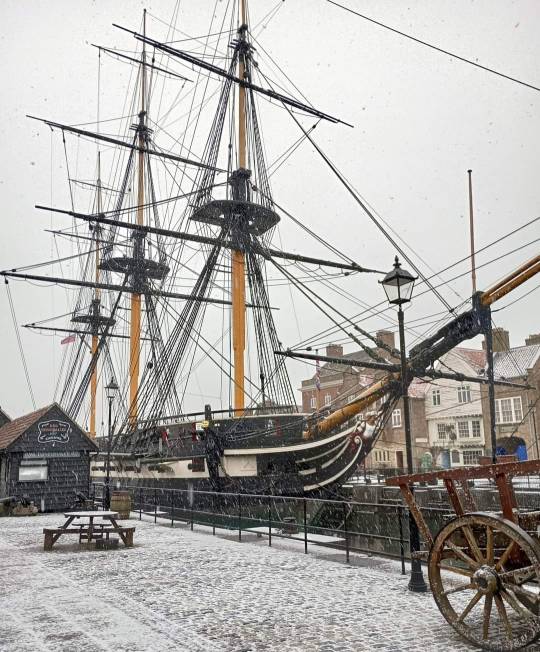
HMS Trincomalee, at the National Museum of the Royal Navy, Hartlepool.
A Leda-class frigate like HMS Shannon, she was built in Mumbai (Bombay) by master shipbuilder Jamsetjee Bomanjee Wadia, who lived c. 1754-1821 (Wikimedia Commons).

It was Wadia who ceremonially hammered a silver nail into Trincomalee's keel, following Parsi Zoroastrian tradition. I'm fascinated by the melding of global maritime traditions.
#hms trincomalee#age of sail#royal navy#naval history#jamsetjee bomanjee wadia#yeah i'm going to mention shannon every time i bring up a sister ship#maritime history#we rightly condemn imperialism but empire by its definition combines different cultures#i love the shipbuilder's portrait#the sea
53 notes
·
View notes
Text
one of my friends is writing her final paper for our class on canadian folk songs so you best believe i immediately started badgering her with questions
#she hasn't decided on whether she wants to focus on maritime / quebec / prairie material yet so i sent her all my pdfs on the maritimes#(not that i'm an expert lmao she definitely has a broader knowledge base than i do)#but i want to read/discuss the paper so badly and it isn't due for another three months 😭
3 notes
·
View notes
Text
fest is almost over i hope everyone who went had fun and made lots of memories and had the best weekend of their life and remembers to cherish every moment whether past present or future also
stay fresh
#ic#im vibing to the closing concerts theyre doing#what im not getting misty eyed to the squid sisters performing maritime memory YOU are#//fjdlkafjla legit i just set my switch propped up to watch a few loops of the post fest concerts#//hugging my squid plush. mourning that it's already over but so fucking glad it happened#//this has been such a fun weekend definitely the best weekend of this year for me at least#//maybe even the best weekend of my life#//if you don't mind me being like. a smidge hyperbolic#//I'M CRYING IN THE CLUB TO FUCKING SPLATOON MUSIC DAYBREAK ANTHEM HAS NEVER SOUNDED SO SOMBER#//AAAAAAAAUGHHH GOODBYE SPLOON3 I LOVE YOUUUUU#//i know it's not like. Over. but in terms of like main shit. there's probably gonna be a pretty decent dropoff of the playerbase after#//i can't wait to see what they have in store for the next game#//and also can't wait to see who wins. but no matter the outcome. it's been the best fest of my life fjdklafjkad
5 notes
·
View notes
Text

Uh...super totally cool and not nerdy stuff....
Um nothing about the new discovery of Harrapan civilization shipyards at Lothal - the heart of the old south Asian civ.
And how that explains south Asian artifacts and more in cradle Mesopotamia and Egyptian sites and what that means for earlier old world trade, this stories, and back and forth religious perhaps influences too?!
Because it is officially now recognized as THE WORLD'S OLDEST PORT!!!!!
And they found foreign artifacts IN the shipyards too! So back and forth trade as well as obvy like mentioned the fact Indian artifacts showed up in the Persian Gulf coast.
But what's crazy is the fact there's networks of rivers and paths showing people traveled and traded TO Lothal (on their way) and then some from Lothal bought and traded onwards and some continued their journeys from there to Mesopotamia (today Iraq). That is huge!
Um...oh, and uh cars, and how to make a PVC tube snow ball when winter comes so I'm prepared to be the most dominant force on my block. Get rekt!
...also the history of sapphic pirates.
Oh, map representation of the water was from Nal Sarova and all the way up from Ahmedabad for how people could get to Lothal -- for some the boat trip was only two days on a boat with a little humped thatched roof over it.

Two days of river going comfortably and you could be at a trade epicenter (water NYC) then from there outward into the wider world to trade with other cradle civilizations. Idk if you get how fucking huge that is for a trader. Think about the stories traded back and forth, superstitions, myths, folktales, lives, and of course they money, goods, information. Learned people would travel ABSOLUTELY for the sake of knowledge and the new.
South Asia was home to the world's oldest residential university. Most of the cradle civilizations were more advanced than many give them credit for because they had built up the wealth/resources at the time to invest back into the collection and pursuit of knowledge so higher level learning through schools of various sorts and private tutelage and having just people dedicated to its pursuits (and libraries of course) all existed and could be funded/possible.
The old world was FAR more interconnected than people realize.
But this is freaking super duper cool.
The Silk Road maritime routes were absolutely documented. But that is a far way away from this period in time.
#google search#search history#Lothal#Mesopotamia#Egyptian#ancient world#ancient history#world trades#South Asia#Southeast asia#silk road#maritime history#oldest ports#persian gulf#Nal Sarova#definitely not nerdy stuff#internet search history#internet history#just writer things#just writer stuff#history is cool#how cool is this#look at this map
4 notes
·
View notes
Note
Mystery the archaeologist! I think that you said one of your things that you’re working on currently has something to do with pirate ships right? Does that mean that you’ll be doing something for Sonic Mermay/Maritime May prompts? You know, since sonadow pirates are very, very popular?
Hey Darlin’!❤️✨
You are absolutely correct—my current project has something to do with pirates! (And may I say, it’s really cute when you guy ask me questions about what I do in my career. It makes me incredibly happy!)
You know, I haven’t considered it. I’ve thought about participating in an event like this before. I wish I could, I’m always busy. But I’ll definitely reblog artwork of the topics!
#Sonadow pirates rotate in my brain like a microwave burrito#I’ve definitely got some pirate facts to share too! You know… in case you want some pirate facts for the maritime prompts come May#mystery anon#off topic
6 notes
·
View notes
Text
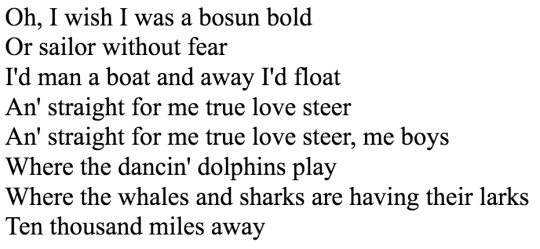
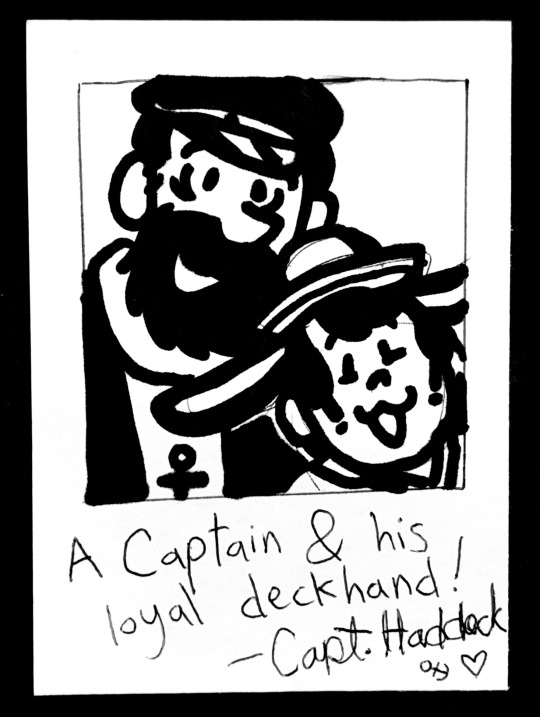
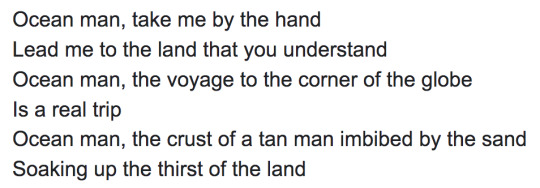
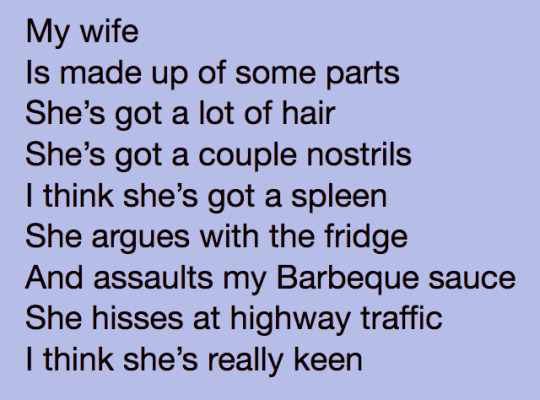
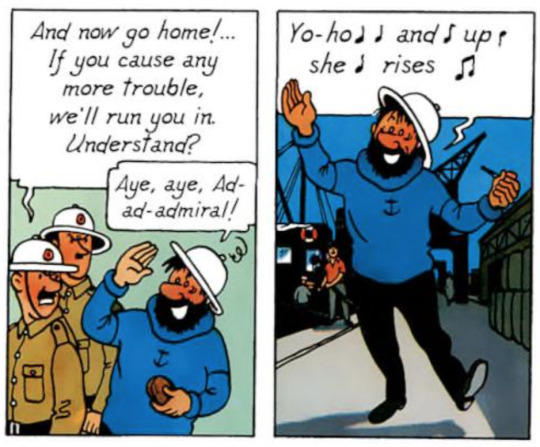





ten thousand miles away (sea shanty) // artwork by me // ocean man by ween // my wife by worm quartet (x4) // the crab with the golden claws by hergé (the adventures of tintin) // the tide is high by the paragons // fish in the sea (sea shanty)
#my first attempt at web weaving#it's not much but it's a start!#this is from my s/i's perspective#this doesn't even begin to scratch the surface of portraying how much I love haddock#but it's definitely an attempt#I wanna make one from haddock's perspective too#selfship#the adventures of tintin#web weaving#maritime#captain haddock#abt capt haddock#private igor#ok to rb#long post#web weave
4 notes
·
View notes
Text
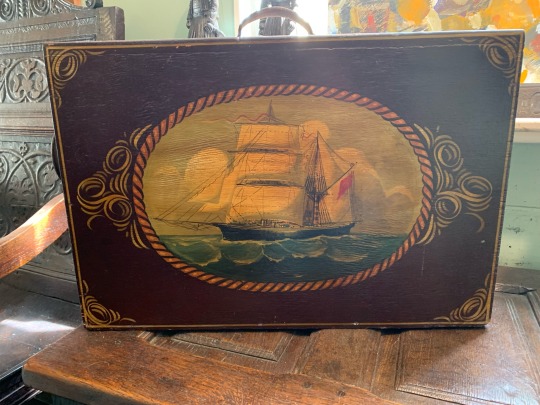
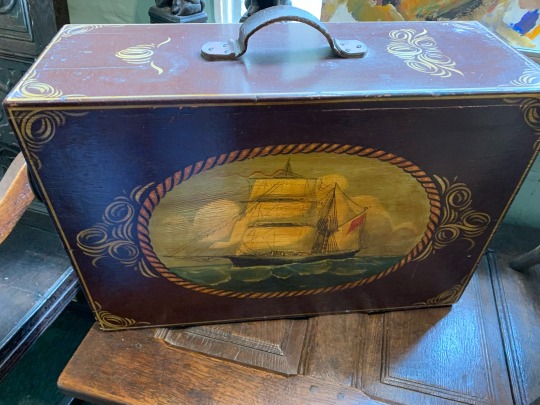
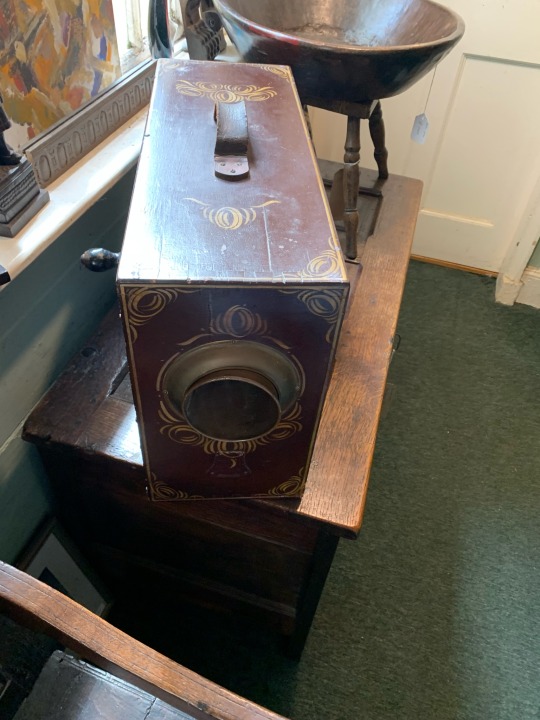


A foghorn from a yacht, 1871. Found in Penzance. The owner bought it from a friend who was the one to say it belonged on a yacht at some point. The crank in the side is how you get it to make its noise. Can’t really sus out more than that about it than that, but I did find it absolutely beautiful and very cool! I’ve never seen a foghorn like this!
#also assuming that the yacht is the one in the painting#it’s unnamed!#but very lovely#don’t do what I did and crank it with your head right next to the opening of the horn#ngl at first I thought it was a very early camera until I asked wtf it was#thought this belonged on here#my ill-thought out trip was worth it!#so damn cool#ITS SO GORGEOUS#please don’t mind the lighting I didn’t wanna pick it up I am a clutz#maritime history#foghorn#age of sail#age of steam#more steam but still#CRANK IT!#I’d be amazed if this was the ORIGINAL box the horn came in though it’s extremely well kept#but I can’t tell!! I couldn’t touch it and definitely couldn’t pick it up to find a maker’s mark
5 notes
·
View notes
Text
Wow clipped shirt stays, I haven't thought of these in a while-- I went to a trade school for university and we had military style uniforms (cringe school) shirt stays were a super common thing to wear, thing is this one that clips your socks? not the most popular, at least not after The Incident.* Basically one guy'd clipped his stays to the sides of his socks (more comfy) unlike in the pic above, which both put more stress on the elastic and a bit of a curve to the trajectory of the stay-- so when the clip have given way, with a no doubt a very interesting demonstration of potential energy transferring violently into kinetic energy, it snapped him RIGHT in the balls. Poor dude was rolling on the parade deck while his squad all were asking wtf had just happened, while the rest of us were all desperately trying not to react Years later, every time i see pictures of the clip kind of shirt stays I can hear him crying out, poor dude *In case you want to look snazzy and wear shirt stays for formal events GET THE STIRRUP TYPES, please I beg, they go under your socks, not over, btw **Morning Formation, but hilariously named so i refuse to expand it in that sentence
imagine someone having a sock garter fetish but its these

#what time is it? maritime#just some bs#sea stories#I highly highly recommend shirt stays it keeps your shirt lookin' crisp even if you suck at remembering to iron your shirts (me)#another fun thing about shirt stays is guys who wore them daily had a bald spot on their leg from where it rubs#another another fun thing about shirt stays is we would MOST DEFINITELY snap them thangs in class to fuck with other students#anyway trade schools can be fun i promise they're just a bit rancid sometimes too
13K notes
·
View notes
Text
Unravel the Mysteries of Maritime Communication: Satellites Connect the High Seas

Welcome aboard, fellow adventurers of the seas! Today, we embark on an exciting voyage to investigate the fascinating field of maritime satellite communication. We will explore the wonders of maritime communication and its critical role in linking the high seas, from the definition of maritime to its significance in trade and law.
Defining Maritime: A Vast World of Waters
Before we begin our journey into the depths of satellite communication, let us define the term "maritime." Simply said, maritime refers to everything having to do with the sea, oceans, or marine activities. It covers a wide range of topics, including marine law, maritime trade, maritime climate, and more. Humans have been drawn to the charm of the sea for generations, travelling into undiscovered waters and finding new areas.
A Historical Perspective on Maritime Communication
Historically, visual signals, flags, and other manual means were used for maritime communication. However, as technology advanced, the arrival of satellite communication transformed how ships, ports, and coastal authorities interacted with one another. Satellites orbiting the Earth provided a whole new level of real-time communication for ships navigating the enormous oceans.
The Arrival of Satellite Communication in the Maritime Sector
The marine industry has recently undergone a paradigm shift, and satellite communication has been at the forefront of this transformation. Rather than relying on traditional radio frequencies, which are restricted by distance and meteorological circumstances, ships increasingly use satellite communication systems, which allow continuous connectivity regardless of their position on the globe.
Breaking the Silence: How Satellite Communication Aids Maritime Trade
Maritime trade is critical to the global economy because it allows goods and commodities to move between continents. Satellite communication has emerged as an important enabler in this process. It promotes effective and safe communication between ships, ports, and logistical hubs by providing constant connectivity. This real-time information flow optimizes routes, tracks shipments, and improves overall operational efficiency, eliminating delays and boosting earnings for maritime trade enterprises.

The Legalities of Satellite Communication and Maritime Law
The expanse of the oceans frequently leads to difficult legal complications, especially in terms of jurisdiction and enforcement. Shipping maritime laws, marine pollution, and international treaties are all governed by maritime law. Satellite communication facilitates in the enforcement of these rules by allowing for the seamless flow of data between authorities and vessels. In the event of an emergency or an accident, real-time communication becomes even more important, enabling for faster reactions and greater coordination in rescue activities.
Where Education Meets Entertainment at the Maritime Aquarium
While satellite communication is unquestionably important for maritime operations, let us take a nice detour to investigate another enthralling aspect of the maritime environment - the maritime aquarium. Maritime aquariums serve an important role in educating the public about marine species, conservation initiatives, and the influence of human activities on aquatic ecosystems. These organizations also benefit from contemporary satellite communication to monitor and track marine creatures in the field, providing significant data to scientific research and conservation efforts.
A Nautical Perspective on Maritime Climate
The term "maritime climate" refers to areas that are close to major bodies of water, such as oceans and seas. Because of the moderating effects of water, these places frequently have milder temperatures than continental climates. Satellites serve an important role in monitoring weather patterns and ocean temperatures, giving meteorologists and researchers with critical data that helps them comprehend climate change and predict catastrophic weather events.
A Connected Oceanic Future: Redefining Maritime Meaning
As we come to the end of our journey through the world of maritime meaning communication and its different parts, one thing is plainly clear: satellite communication has changed the definition of marine. It has connected faraway ships and coastlines, promoted global trade, helped to marine conservation, and improved safety and security on the high seas. As technology advances, we can only imagine a future in which satellite communication increases humanity's link with the immense oceans that have enthralled us for ages.
As we exit from our maritime definition voyage today, let us take with us the awareness that satellite communication is more than just a convenience tool; it is a powerful tool that connects us to the blue horizons of possibilities that lie ahead.
#satellite communication#maritime#maritime definition#maritime law#maritime aquarium#define maritime#maritime trade#maritime climate#maritime meaning
0 notes
Text
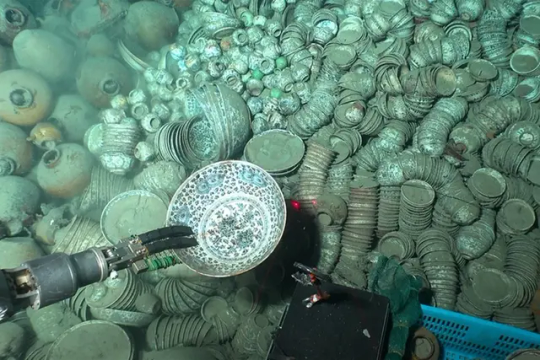
900 Artifacts From Ming Dynasty Shipwrecks Found in South China Sea
The trove of objects—including pottery, porcelain, shells and coins—was found roughly a mile below the surface.
Underwater archaeologists in China have recovered more than 900 artifacts from two merchant vessels that sank to the bottom of the South China Sea during the Ming dynasty.
The ships are located roughly a mile below the surface some 93 miles southeast of the island of Hainan, reports the South China Morning Post’s Kamun Lai. They are situated about 14 miles apart from one another.
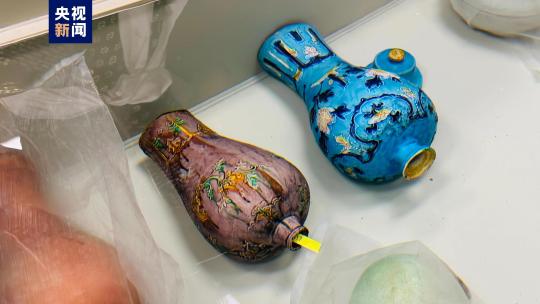
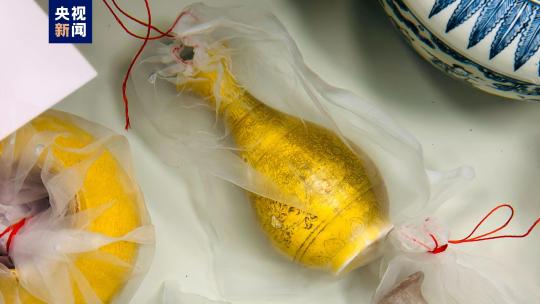
During three phases over the past year, researchers hauled up 890 objects from the first vessel, including copper coins, pottery and porcelain, according to a statement from China’s National Cultural Heritage Administration (NCHA). That’s just a small fraction of the more than 10,000 items found at the site. Archaeologists suspect the vessel was transporting porcelain from Jingdezhen, China, when it sank.
The team recovered 38 items from the second ship, including shells, deer antlers, porcelain, pottery and ebony logs that likely originated from somewhere in the Indian Ocean.
Archaeologists think the ships operated during different parts of the Ming dynasty, which lasted from 1368 to 1644.
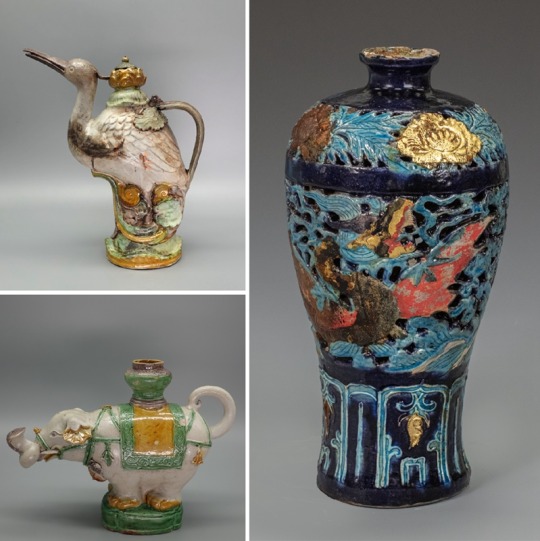
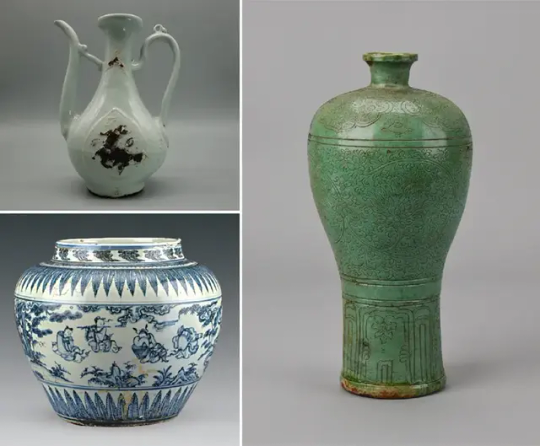

Many of the artifacts came from the Zhengde period of the Ming dynasty, which spanned 1505 to 1521. But others may be older, dating back to the time of Emperor Hongzhi, who reigned from 1487 to 1505, as Chris Oberholtz reported last year.
Archaeologists used manned and unmanned submersibles to collect the artifacts and gather sediment samples from the sea floor. They also documented the wreck sites with high-definition underwater cameras and a 3D laser scanner.
The project was a collaboration between the National Center for Archaeology, the Chinese Academy of Science and a museum in Hainan.
“The discovery provides evidence that Chinese ancestors developed, utilized and traveled to and from the South China Sea, with the two shipwrecks serving as important witnesses to trade and cultural exchanges along the ancient Maritime Silk Road,” says Guan Qiang, deputy head of the NCHA, in the agency’s statement.
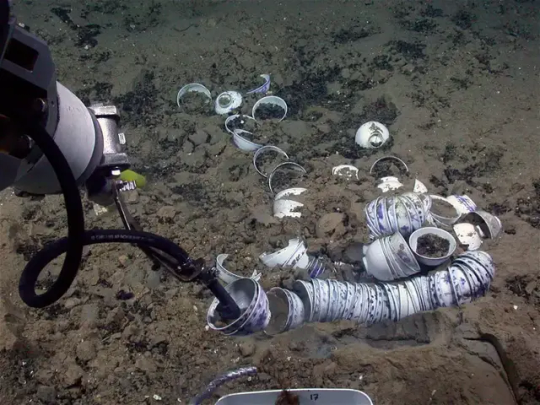
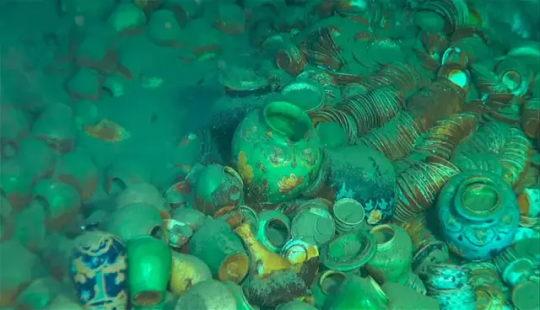
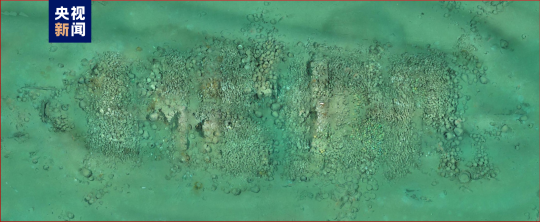
During the Ming dynasty, China’s population doubled, and the country formed vital cultural ties with the West. Ming porcelain, with its classic blue and white color scheme, became an especially popular export. China also exported silk and imported new foods, including peanuts and sweet potatoes.
The period had its own distinctive artistic aesthetic. As the Smithsonian’s National Museum of Asian Art writes, “Palace painters excelled in religious themes, moralizing narrative subjects, auspicious bird-and-flower motifs and large-scale landscape compositions.”
The shipwreck treasures aren’t the only recent discoveries in the South China Sea, according to CBS News’ Stephen Smith. Just last month, officials announced the discovery of a World War II-era American Navy submarine off the Philippine island of Luzon.
By Sarah Kuta.

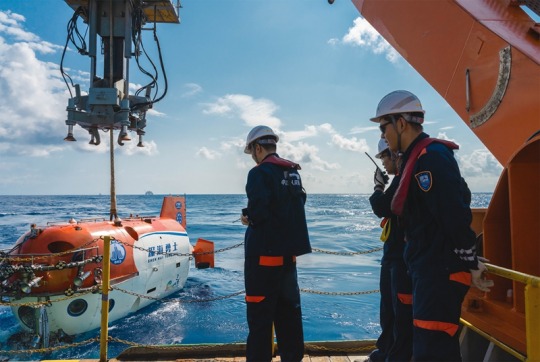
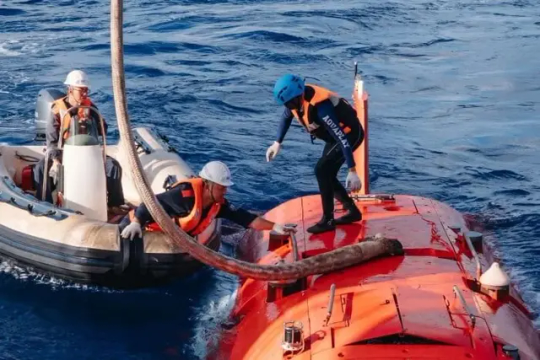
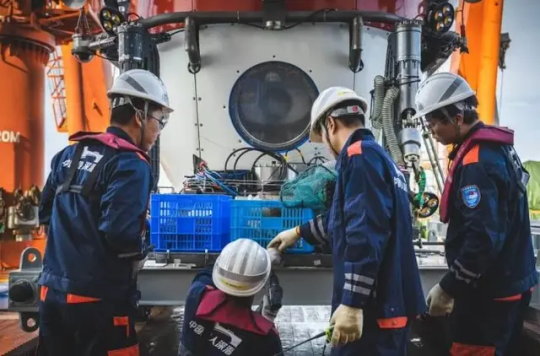
#900 Artifacts From Ming Dynasty Shipwrecks Found in South China Sea#island of Hainan#Ming dynasty#shipwreck#ancient artifacts#archeology#archeolgst#history#history news#ancient history#ancient culture#ancient civilizations#ancient china#chinese history#chinese art#ancient art
944 notes
·
View notes
Text
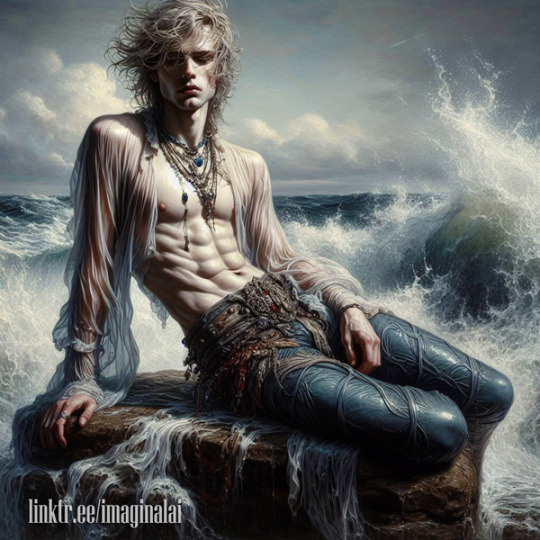
"Stranded" (0004)
(More of the Shipwrecked Series)
0003
0002
0001
#stranded#maritime disasters#stormy#survival#fashion jewelry#gemstone jewelry#long haired man#long hair#lean man#bare foot#abdominals#muscular definition#ai men#ai generated#ai artwork#ai art community#gay ai art#art direction#fashion illustration#gothic romanticism#gothic aesthetic#windswept#rough seas#ai gay#gay romance#glamour#shipwrecked#pathos#black male body#black male beauty
32 notes
·
View notes
Text
Ye Banished Privateers - Capstan Shanty 2020
A sea shanty, shanty, chantey, or chanty is a genre of traditional folk song that was once commonly sung as a work song to accompany rhythmical labor aboard large merchant sailing vessels. The term shanty most accurately refers to a specific style of work song belonging to this historical repertoire. However, in recent, popular usage, the scope of its definition is sometimes expanded to admit a wider range of repertoire and characteristics, or to refer to a "maritime work song" in general. Shanty songs functioned to synchronize and thereby optimize labor, in what had then become larger vessels having smaller crews and operating on stricter schedules. Such tasks, which usually required a coordinated group effort in either a pulling or pushing action, included weighing anchor and setting sail. The practice of singing shanties eventually became ubiquitous internationally and throughout the era of wind-driven packet and clipper ships. A capstan is a vertical-axled rotating machine developed for use on sailing ships to multiply the pulling force of sailors when hauling ropes, cables, and hawsers.
Ye Banished Privateers are a folk rock band from Umeå, Sweden. Their songs are inspired by traditional Irish and Scandinavian folk music and their lyrics are mostly based on sea and piracy history from the 17th and 18th century. During their shows they portray a crew of pirates, wearing historical clothes and acting while playing, making the show itself a mix of music and theatre.
"Capstan Shanty" received a total of 71,3% yes votes!
youtube
#submitted#new to admin :D#finished#sweblr#high yes#low reblog#20s#o2#o2 sweep#o2 ultrasweep#lo3#ye banished privateers#english
290 notes
·
View notes
Text
From what I can tell pinnace is perhaps more based on the role of the vessel rather than the characteristics, with the main characteristic that seems to apply throughout is that they mainly seem to be on the smaller side of things and relatively lightly built.
It does also seem to have regional variance, as according to Dutch Warships in the Age of Sail 1600-1714 by James Bender it suggests that it was the equivalent term for a frigate in their service during that period (its in the glossary as my ebook copy isn't currently showing page numbers so unfortunately can't give that rn) and that would seem to fit how it applies to the Kalmar Nyckle, while the Virginia seems to fit the British description I have in the Oxford Companion to Ships and the Sea of a small, two masted vessel normally square rigged with a lugsail on the main (page 649 in my edition).
So it definitely seems to be a case of typology is a mess, though there's probably more to it than what I said, so I'm definitely more than happy to be corrected, but that's what I could find with what I had on hand so hope it helped!

Look at my pinnace, boy
#maritime history#definitely take with a grain of salt for I am simply a professional idiot#but hopefully vaguely helpful?
47 notes
·
View notes